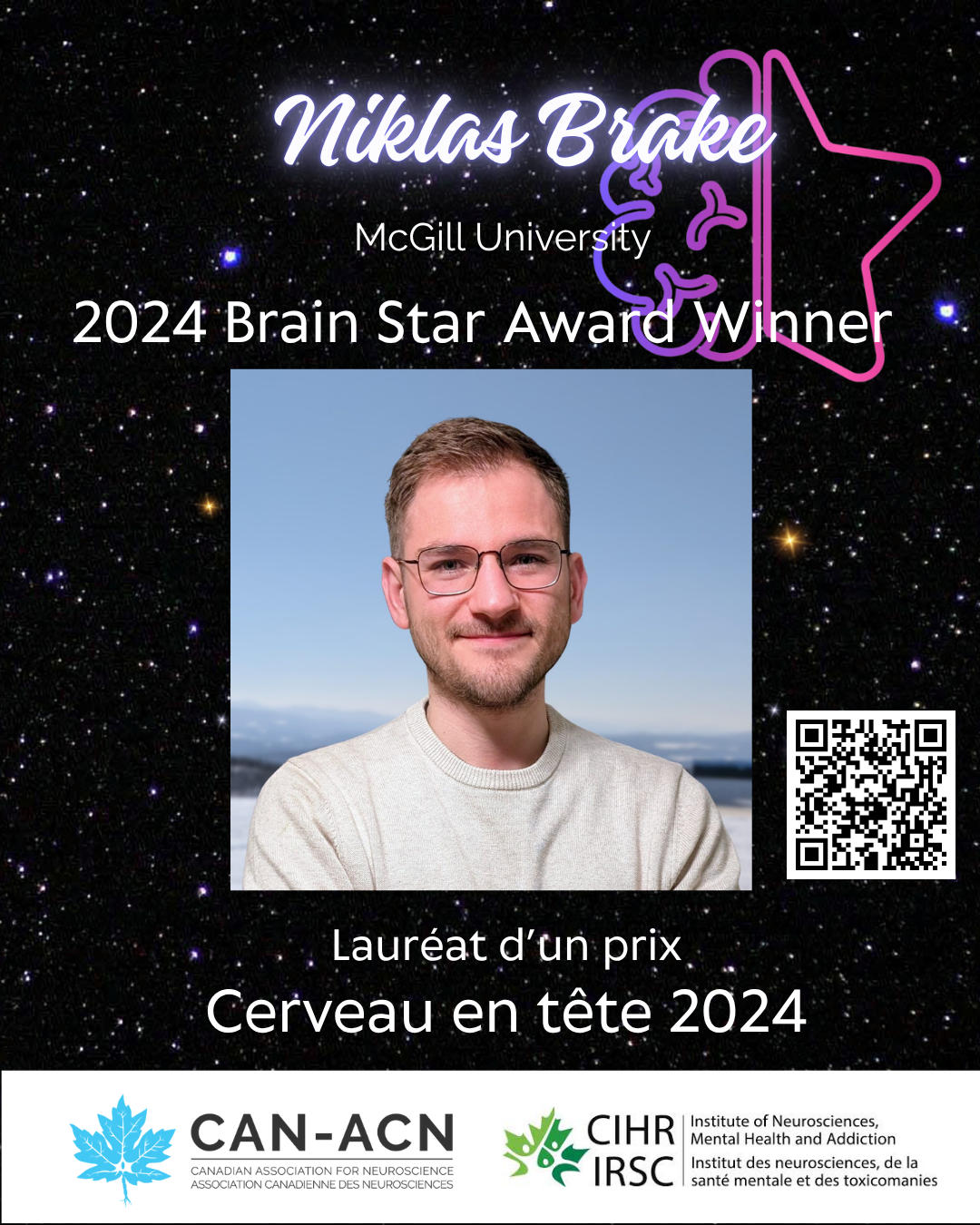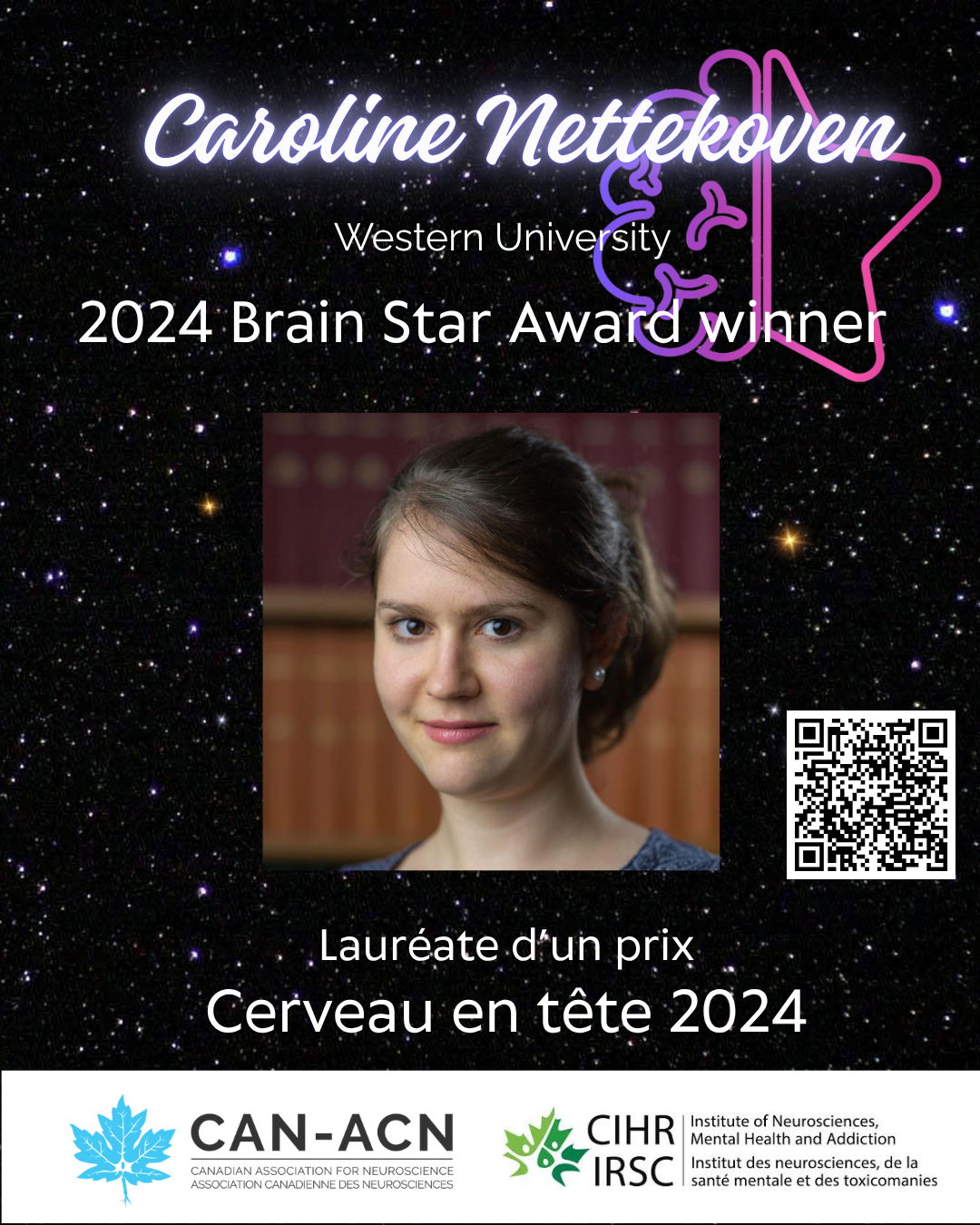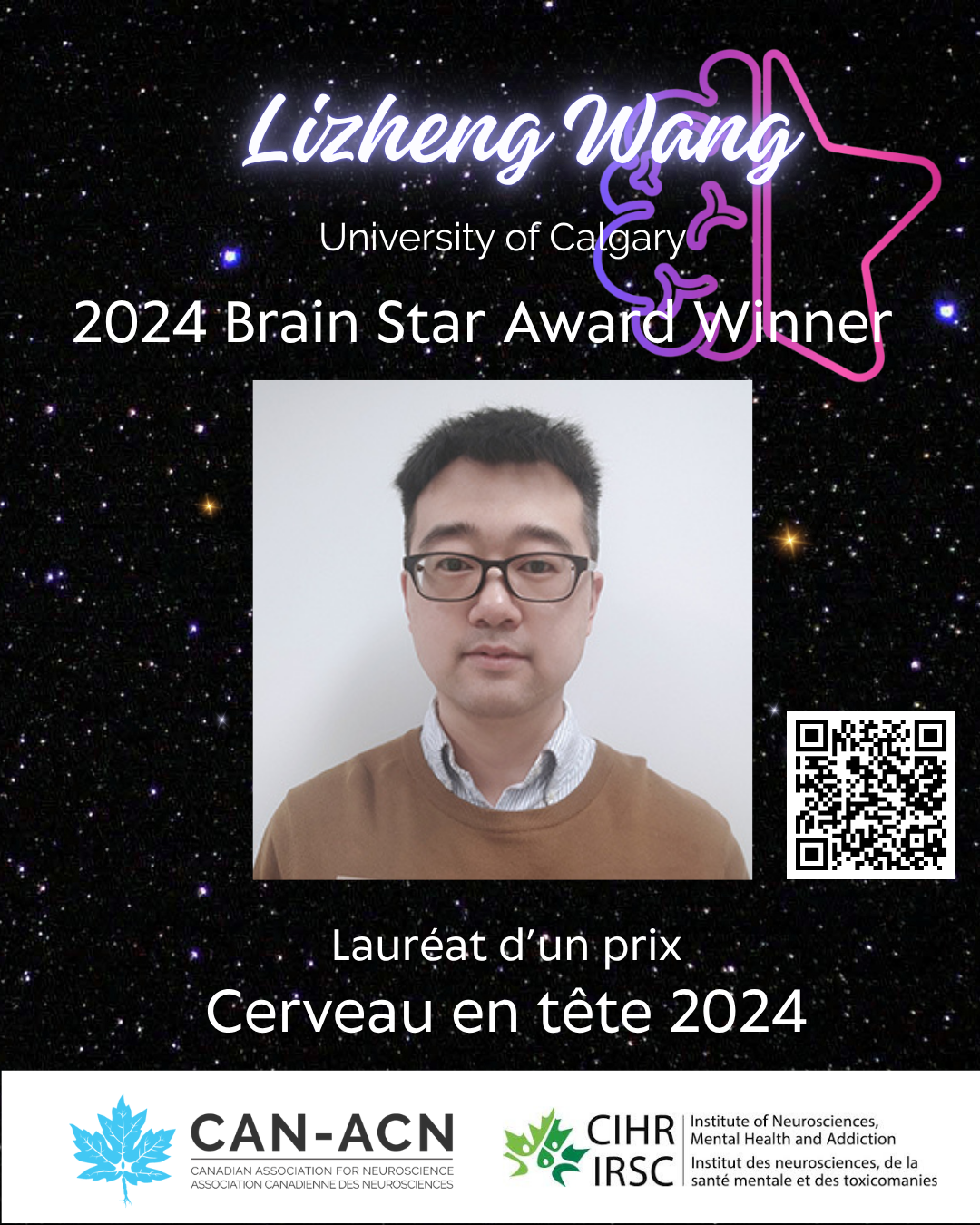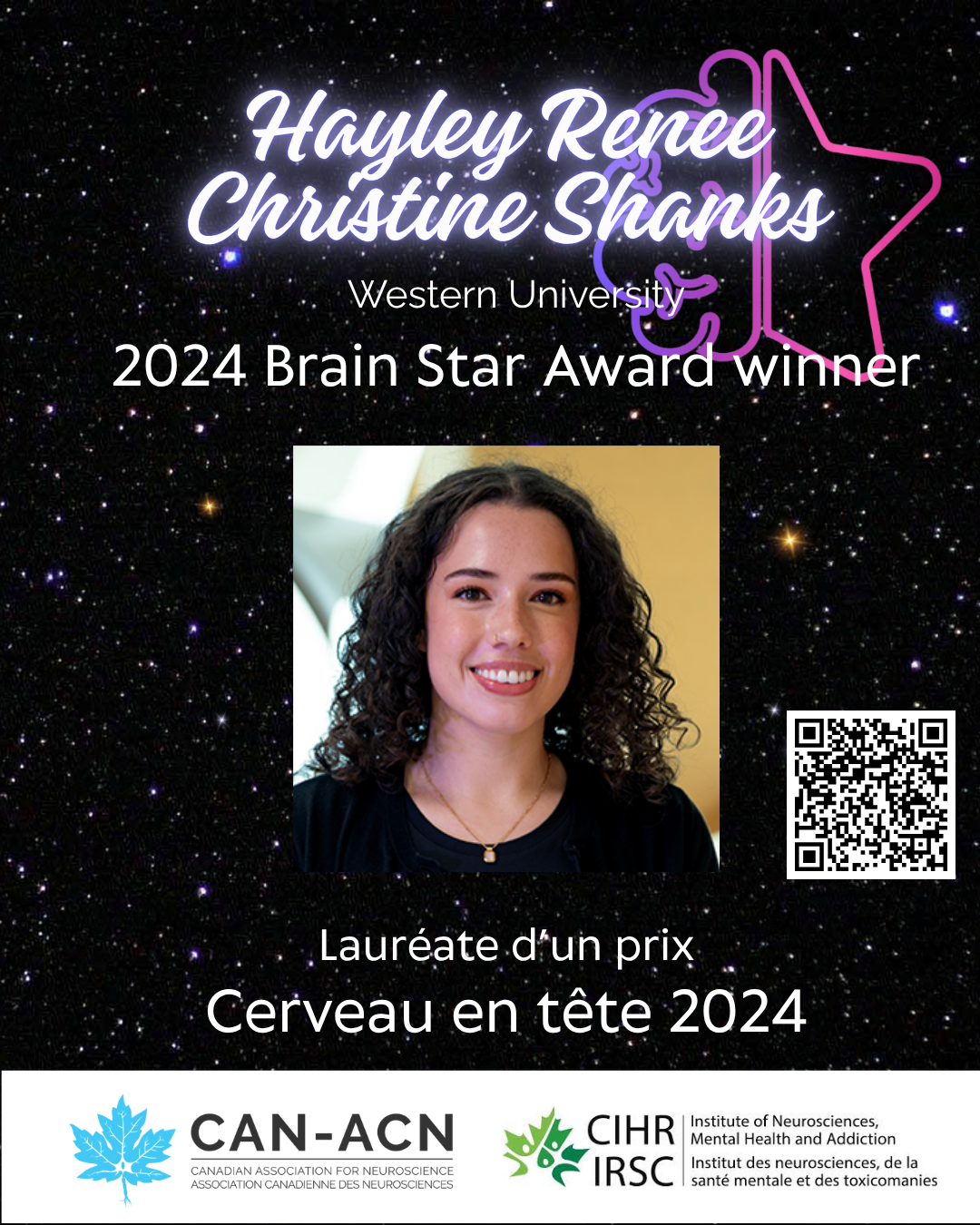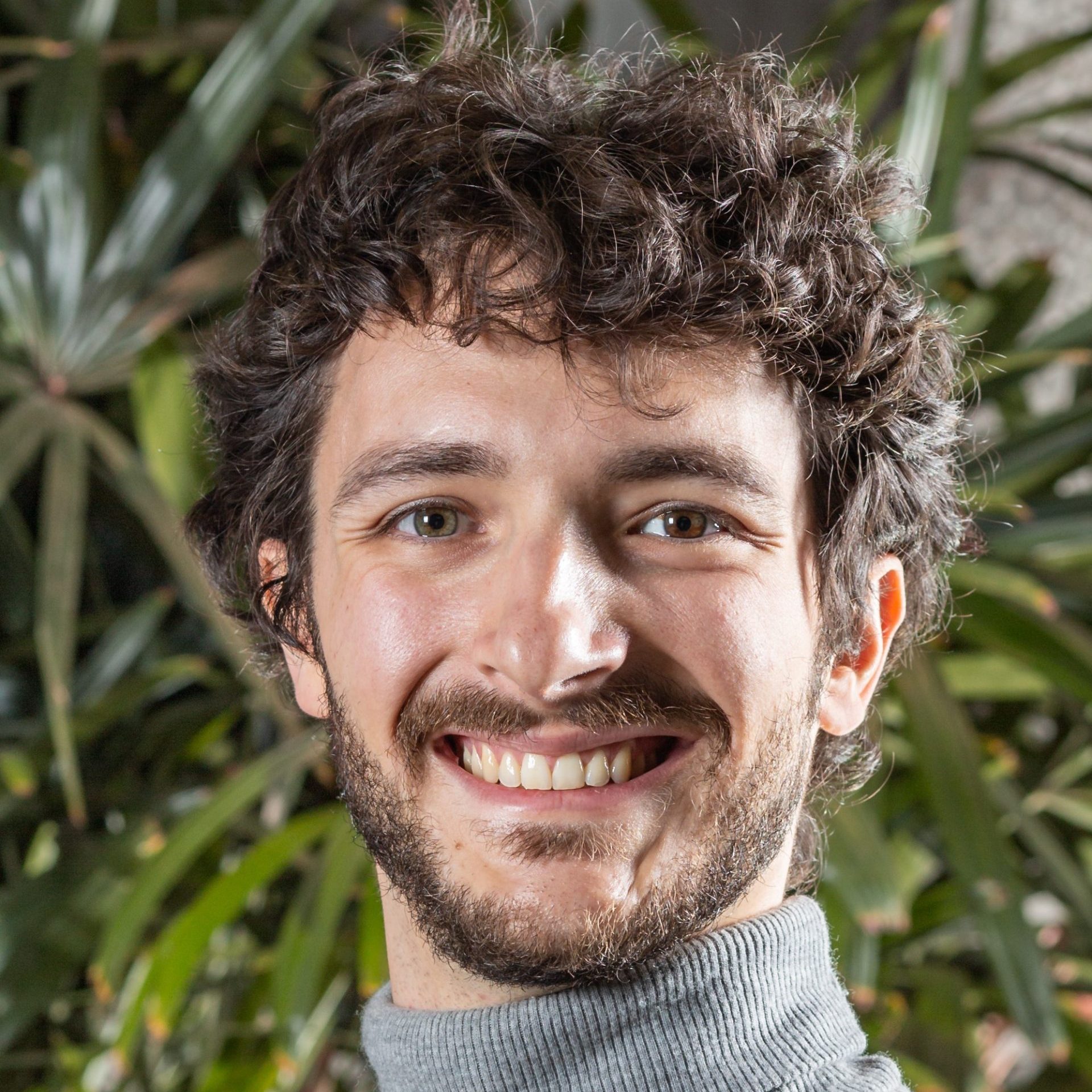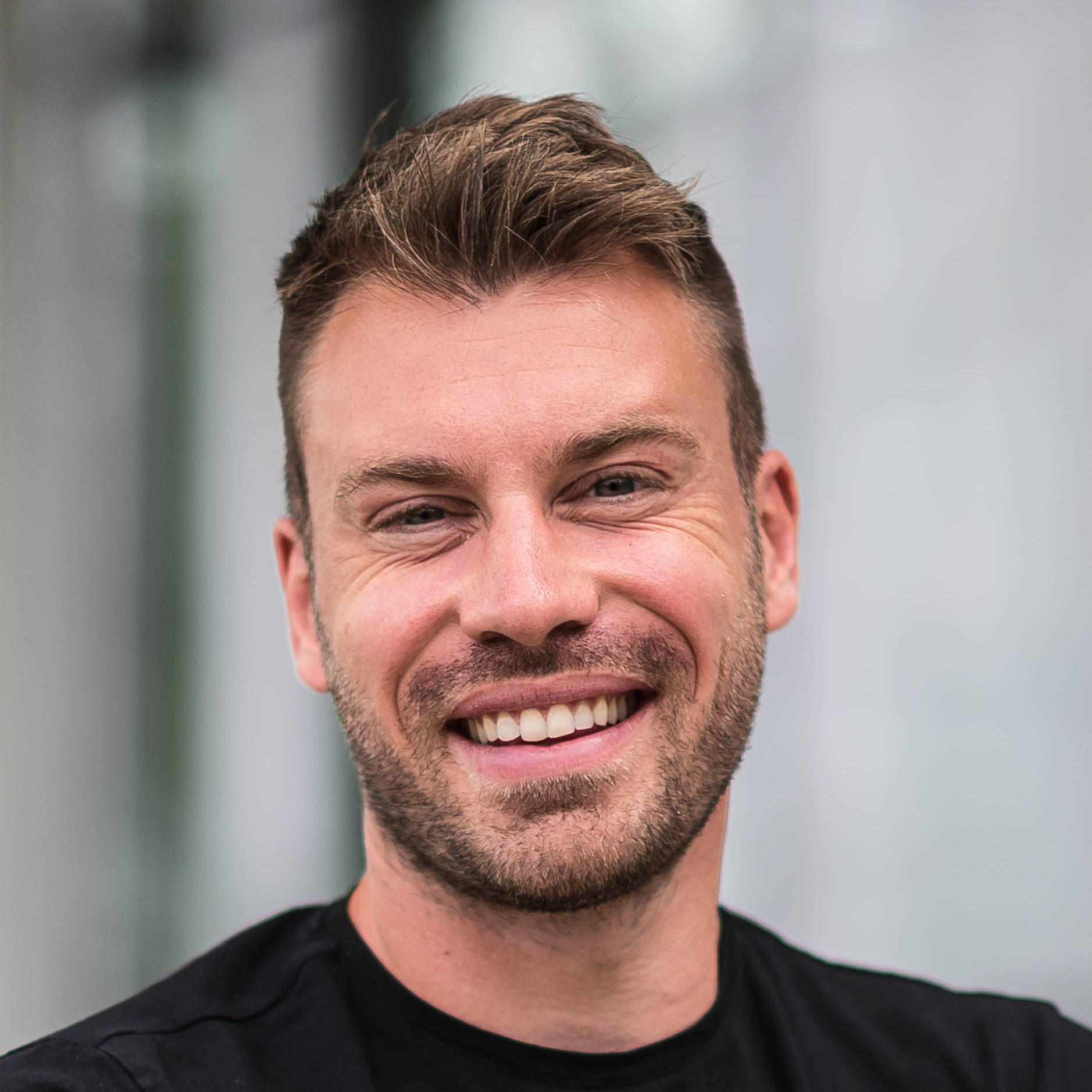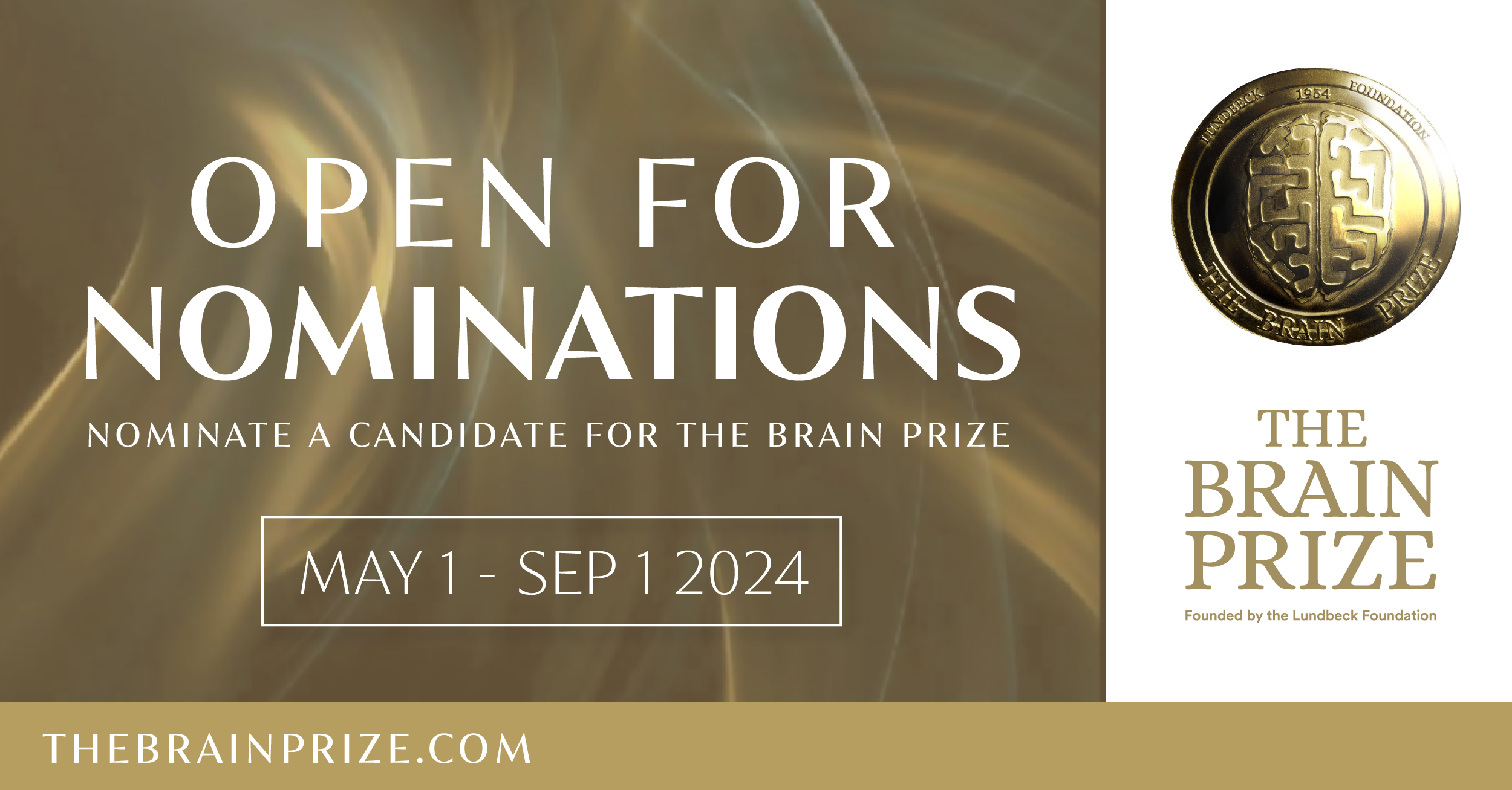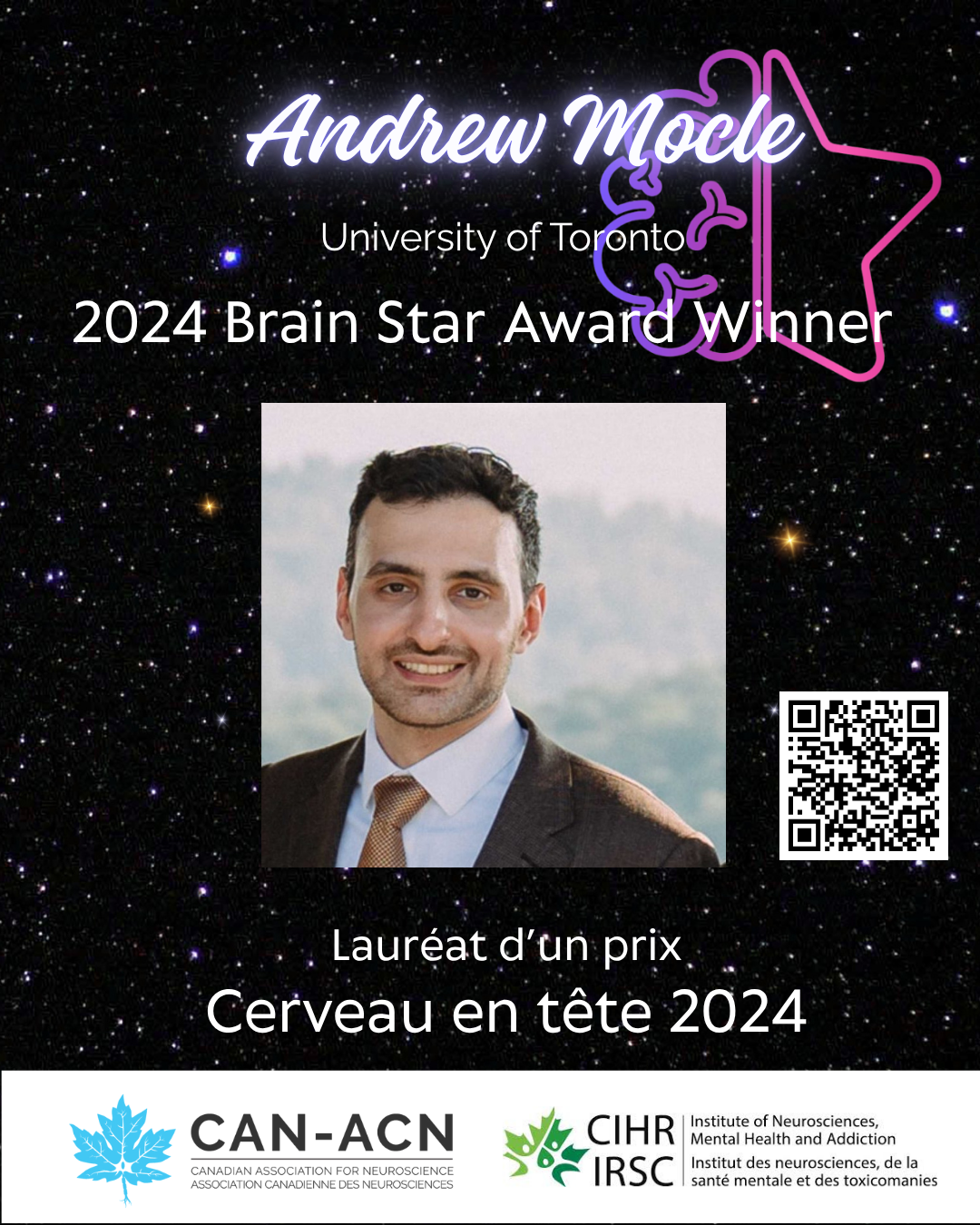
Better understanding how ensembles of neurons are recruited in memory formation.
The hippocampus is a critical brain region for encoding and recall of episodic memories. The physical trace left in the brain by memory formation is called an ‘engram’, and the process by which new engrams are formed is still unclear. In this work, Andrew Mocle, working in the laboratory of Sheena Josselyn, used advanced imaging techniques to track neurons and their patterns of activity before, during, and after memory encoding. The resulting data prompted a new engram formation model, whereby small ensembles of neurons (instead of individual cells) are allocated to an engram depending on their average excitability at the time of learning. The demonstration that highly-excitable ensembles are preferentially allocated to encode newly learned information represents a major conceptual advance in the study of how memories are stored in the brain.
Read more: https://can-acn.org/brain-star-award-winner-andrew-mocle/
Featured scientific publication: Mocle, Andrew J., Adam I. Ramsaran, Alexander D. Jacob, Asim J. Rashid, Alessandro Luchetti, Lina M. Tran, Blake A. Richards, Paul W. Frankland, and Sheena A. Josselyn. “Excitability Mediates Allocation of Pre-Configured Ensembles to a Hippocampal Engram Supporting Contextual Conditioned Threat in Mice.” Neuron 112, no. 9 (May 1, 2024): 1487-1497.e6.






